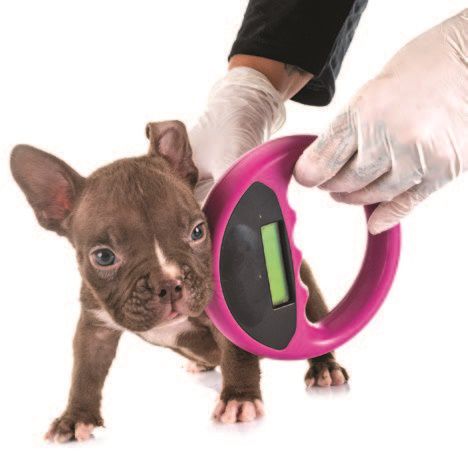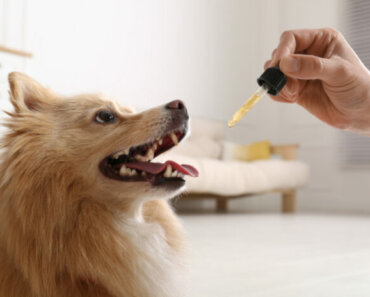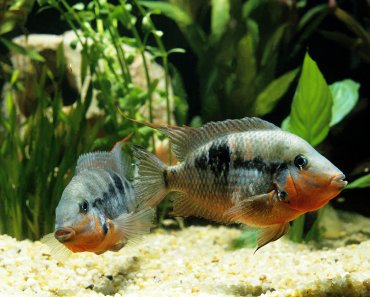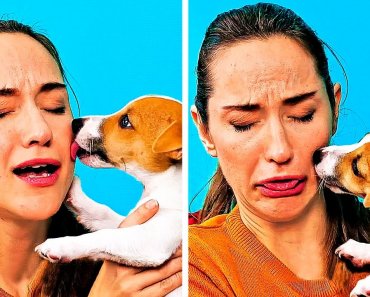Just like with human babies, puppies go through different periods of development as they grow up. Understanding these key stages can help you better prepare and care for your new best friend to help her grow into a well-adjusted, healthy dog. What can you expect as your puppy grows?
Birth — 2 weeks
Puppies are born helpless. They’re unable to regulate their own body temperature and need their mother’s help to potty. Puppies are born with their eyes closed and are unable to hear. They are completely reliant upon their mother for all their needs. Gentle handling by the dog breeder is important to help puppies begin to develop positive associations with people.
2 weeks — 4 weeks
Puppies’ eyes open, and they start to stand instead of scooting or crawling. Puppies can more intentionally engage with their littermates. At around 3 weeks, they begin to wag their tails. This is an important stage of development. Breeders should expose the puppies to an array of novel objects and surfaces (that are puppy safe) to help them develop into confident adult dogs.
4 weeks — 8 weeks
Puppies begin the weaning process and eat solid foods. A puppy’s personality becomes clear, and she begins actively playing and engaging with the world around her. She is now fully able to use her senses, including sight, as she learns about and engages with the world around her. Active little puppies get themselves into all kinds of fun and adventure including biting, chasing, barking, and playing with toys and littermates. Things to note:
✤ This is a key time when a puppy will deepen and develop relationships with people, which should include introducing a regular grooming routine so that the puppy will get used to the feelings and sensation of being brushed, having her nails trimmed, and ears examined and cleaned.
✤ At between 6 and 8 weeks of age, puppies start getting their first round of vaccines. Most puppies will get vaccines every two to four weeks (usually three to four vaccination sessions to prevent parvo and distemper) until they are 20 weeks old.
✤ Puppies between 6 and 8 weeks old and 2 pounds can generally get microchipped. Some breeders and most shelters have their puppies microchipped before they go to their forever families
✤ Most puppies go to their forever homes between 8 and 12 weeks, but some do (due to the breed or shelter needs) go home at 6 or 7 weeks. If your puppy has not yet been vaccinated, make an appointment with your vet immediately to bring your puppy in for vaccines and create a vaccine schedule, as well as to discuss the best age to microchip your puppy. Some vets may request waiting longer for smaller dogs.
8 weeks — 12 weeks
This is the typical age when your puppy is going to be coming home. Increasingly, especially with large breed dogs, some breeders keep puppies with their mother and littermates until they are 10 to 12 weeks of age, allowing for early socialization to happen with the breeder, the mother and littermates. What you should know:
✤ By this age puppies are completely weaned by their mothers and are independently eating solid food.
✤ Your puppy will continue to get vaccines, including any noncore vaccines that your vet may recommend like Influenza, lyme, bordetella and leptospirosis.
✤ This is a critical socialization period with big learning moments for puppies. They learn important lessons by gentle exposure to new places, surfaces, sounds and sights from the world around them. Proper socialization is key to shaping the way they understand the world for the rest of their lives.

12 weeks — 16 weeks
Socialization and exploring the world as puppies adds to dimensional, emotional and physical development at this time. This is when (most) puppies go through their first fear period. Any negative experiences or scary things that happen could have lifelong influences on the puppy. It’s important for puppies to be taken on intentional training outings to the vet and other dog-friendly places to help her build positive associations. Your puppy will be having regular vet visits at this time to continue getting vaccination boosters. This is a great opportunity to help your puppy make positive associations with being at the vet clinic.
3 months — 6 months
As your puppy has finished her puppy vaccinations, it’s safe for her to begin going more places and meeting more people and other dogs.
✤ Basic training classes at this age will help you better understand your puppy and support her with being a lifelong, enthusiastic learner.
✤ As puppies continue to grow and develop, they are still physically maturing, so carefully monitor exercise to ensure they don’t hurt their developing joints. Talk with your vet about appropriate amounts of exercise for puppies to get at this age.
✤ At 12 to 18 weeks (check your state’s law for age requirement), your puppy will be able to get her rabies vaccination. This is required by law in most areas and enables you to register your dog in your local municipality.
✤ Your puppy can go for her first professional grooming appointment. Keep the first one brief and just the basics — getting her used to scissors, a dremmel, a blow dryer, etc. More extensive clipping can come later when she is more comfortable and can stand still longer.
6 months — 12 months
At this age puppies are solidly in adolescence bordering on adulthood, depending on their size. For small dogs, this is when they will reach full size. For larger, this will still be a period of growth. Small-breed puppies generally reach physical and mental adulthood by their first birthday.
✤ At 6 months, puppies can begin competing in low-impact sports like trick training and rally obedience. ✤ At this age, many (except for the largest of breeds) puppies will reach sexual maturity. Talk with your vet about the right age to spay or neuter your puppy depending on his/her size, breed, health and known breed-specific health concerns.
✤ At 6 to 14 months, puppies enter a secondary fear period. During this stage, your puppy may become shy or uncomfortable with new things or situations. Your puppy may also appear fearful of experiences or things they were previously exposed to and comfortable with.
✤ Small- and medium-breed puppies are young adults by this age, having reached full size and maturity levels.

13 months — 16 months
Although small-breed puppies will be adults, large-breed puppies will just now be reaching physical and emotional maturity. Giant-breed puppies may not be fully developed until well after their second or even third birthdays.
For training in higher-impact sports like agility, flyball or dock diving, talk with your vet about when your puppy has reached full physical size. Puppies need to be fully physically mature before doing any high-impact training in order to prevent injuries. Your vet will look for growth plates to close, making it safe for dogs to participate in higher-impact activities.
Why chip and license?
If you have a purebred puppy, your breeder will give you your puppy’s AKC registration paperwork. File that paperwork right away so that you are listed as your puppy’s owner.
Get your puppy microchipped right away. If your puppy has already been microchipped by the shelter or breeder, you need to update her new residence information with the microchip company immediately. This helps keep your puppy safe and find her way home if she’s ever lost, and it helps to legally show she is yours.

Once you get your puppy and she has received her rabies vaccination, it’s time to apply for a license, typically with your county or city. Just like the rabies vaccine, this is the law in most states (or you will be fined). Usually a puppy must be licensed from age 4 months on up. If your puppy gets lost, an up-todate license helps your local animal control contact you faster.
You may also have to prove your dog has been spayed/neutered or pay a higher fee for an unspayed/unneutered dog. Call or go online to your local animal control to learn requirements in your city or county. Note that a license is an easy proof of a rabies vaccination for groomers and doggie daycares. Licensing fees typically support animal programs and services, so that’s a good thing.


























